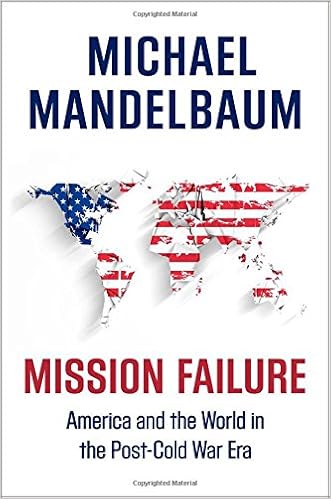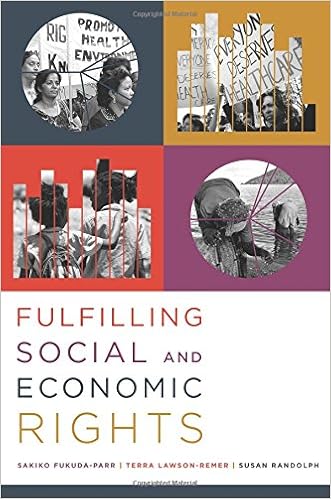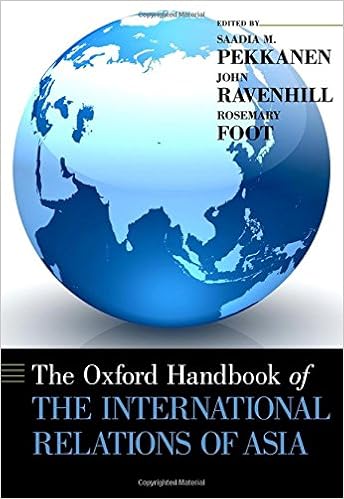
More than part a century after the appearance of the nuclear age, is the realm coming near near a tipping element that might unharness a virus of nuclear proliferation? this present day a number of the construction blocks of a nuclear arsenal—scientific and engineering services, precision computing device instruments, software program, layout information—are extra on hand than ever sooner than. The nuclear pretensions of so-called rogue states and terrorist corporations are a lot mentioned. yet how enterprise is the unravel of these international locations that traditionally have selected to forswear nuclear guns? a mix of alterations within the foreign atmosphere may well trigger a domino influence, with international locations scrambling to advance nuclear guns in order to not be left behind—or to improve nuclear "hedge" capacities that may let them construct nuclear arsenals rather quick, if priceless. Th e Nuclear Tipping element examines the standards, either household and transnational, that form nuclear coverage. The authors, exceptional students and international coverage practitioners with vast executive adventure, boost a framework for realizing why definite international locations could initially have determined to give up nuclear weapons—and pinpoint a few more moderen country-specific components that can supply them reason to re-examine. Case experiences of 8 long term stalwarts of the nonproliferation regime—Egypt, Germany, Japan, Saudi Arabia, South Korea, Syria, Turkey, and Taiwan—flesh out this framework and convey how even those nations can be driven over the sting of a nuclear tipping aspect. The authors provide prescriptions that may either hinder such international locations from reconsidering their nuclear choice and sidestep proliferation by means of others. The stakes are huge, immense and luck is much from guaranteed. to maintain the tipping aspect past succeed in, the authors argue, the foreign group must act with solidarity, mind's eye, and power, and Washington's management can be crucial. participants contain Leon Feurth, George Washington college; Ellen Laipson, Stimson heart; Thomas W. Lippman, heart East Institute; Jenifer Mackby, heart for Strategic and overseas reports; Derek J. Mitchell, middle for Strategic and foreign experiences; Jonathan D. Pollack, U.S. Naval battle university; Walter B. Slocombe, Caplin and Drysdale; and Tsuyoshi Sunohara, middle for Strategic and overseas Studies.
Read or Download The Nuclear Tipping Point: Why States Reconsider Their Nuclear Choices PDF
Similar Diplomacy books
Mission Failure: America and the World in the Post-Cold War Era
The tip of the chilly warfare resulted in a dramatic and basic switch within the overseas coverage of the U.S.. In undertaking Failure, Michael Mandelbaum, certainly one of America's prime foreign-policy thinkers, offers an unique, provocative, and definitive account of the formidable yet deeply unsuitable post-Cold struggle efforts to advertise American values and American associations through the international.
The Oxford Handbook of Modern Diplomacy (Oxford Handbooks)
At a time while diplomatic practices and the calls for imposed on diplomats are altering fairly substantially, and lots of overseas ministries believe they're being left in the back of, there's a have to comprehend many of the forces which are affecting the occupation. international relations is still a salient task in ultra-modern global within which the elemental authoritative actor continues to be the kingdom.
Fulfilling Social and Economic Rights
Probably the most formidable legacies of the twentieth century was once the common dedication to make sure freedom from wish as a human correct. yet to what quantity are nations internationally residing as much as this dedication? This course breaking booklet develops an leading edge, evidence-based index for evaluating functionality on schooling, nutrition, health and wellbeing, paintings and housing throughout very otherwise located international locations and over the years.
The Oxford Handbook of the International Relations of Asia (Oxford Handbooks)
Long ago region century, the significance of Asia in diplomacy has grown exponentially. This guide gathers crucial students within the box of Asia's diplomacy to handle this momentous swap in international politics. The editors and individuals specialize in 3 easy issues: assessing acceptable theories for explaining the evolution of the diplomacy of Asian international locations in the zone and with the remainder of the realm; tracing the new historical past of Asia in global politics; and targeting rising developments.
Additional info for The Nuclear Tipping Point: Why States Reconsider Their Nuclear Choices
But when the probability to Saudi Arabia is non-nuclear and oblique, via insurgency, guerrilla moves, and infiltration and sabotage of soppy objectives comparable to water desalination vegetation, a U. S. nuclear warrantly wouldn't suffice simply because in this type of case, whether Washington intervened militarily to prop up the ruling relations, it'll in no way use nuclear guns. The Saudis may good consider the necessity to strengthen a nuclear reaction potential that they'd keep an eye on themselves, NPT responsibilities or now not. in need of a proper “nuclear umbrella” dedication, even if, there are confidence-building steps the U.S. may well take. In a paper for the nationwide safety college, Joseph McMillan pointed out numerous particularly painless strikes Washington can make to revive the bilateral courting to its former convenience point. One used to be to “undertake a real strategic discussion. ” in line with McMillan, there's no shared figuring out with the Saudi management at the strategic underpinnings of the bilateral courting and the way forward for the quarter. American and Saudi officers have conflicting rationales 06 1330-4 chap6 a hundred and forty 5/20/04 1:10 PM web page one hundred forty THOMAS W. LIPPMAN for the presence of U. S. forces within the state, conflicting understandings of the possibility, and certainly conflicting perceptions over find out how to circulation ahead. those consultations must be frank, strictly deepest, common and including all points of the U. S. -Saudi courting, from safeguard and oil to agriculture and schooling. sixty two McMillan additionally steered that American officers cease issuing public characterizations of what Saudi Arabia has agreed or refused to do. Such reviews “often have unpredictable and unproductive consequences,” he wrote—that is, Saudi leaders, for household purposes, usually locate it essential to take public positions opposite to Washington’s lest they look like doing U. S. bidding. sixty three one other invaluable step will be to inform the Saudis directly—in self belief, yet with absolute clarity—that any dalliance with the trap of nuclear guns will be counterproductive. A revered senior reputable, talking for the president, will be dispatched to carry this message and spell out the results. This authentic may still hold a personal letter from a couple of senior contributors of Congress of either events letting the Saudis be aware of that—unlike Pakistan—they might don't have any help in Congress in the event that they have been to enterprise down the nuclear street. The Saudis don't enjoy being threatened and resent any communique that appears like a command or an ultimatum; for these purposes, this type of U. S. démarche might be undertaken provided that there's cause to think that Riyadh is considering a nuclear choice. eventually, the management should still decide on a suitable second, maybe after Iraq has stabilized, to factor a brand new formula of the so-called Carter Doctrine. In January 1980, in his country of the Union handle a couple of weeks after Soviet troops marched into Afghanistan, President Jimmy Carter declared, “An try by way of any outdoor strength to realize regulate of the Persian Gulf sector may be considered as an attack at the important pursuits of the us.



